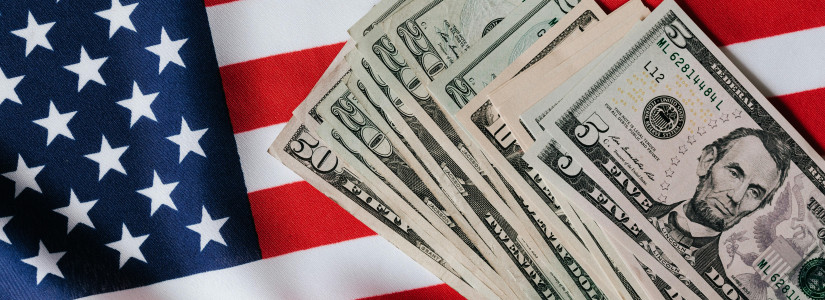Reasons Why Inflation is Impacting Your Budget More Than You Realize
Inflation is an economic problem that affects everyone, not just large companies and governments. It can significantly impact your budget, even if you don't notice it immediately, because it can be hard to track. Therefore, you must monitor the cost of goods and services you regularly purchase to ensure your budget is not impacted more than necessary.
1. Rising Food Prices
Rising food prices due to inflation can seriously impact your budget if you're not careful. It's easy for the costs to add up quickly when shopping at the grocery store. It can easily put you in a difficult financial situation if you don't take the time to compare prices or create a plan.
Research cost-effective alternatives or bulk-buying groceries so that they last longer are great. Additionally, cutting back on expensive items and searching for coupons or special deals can ease some of the financial pressure that inflation may bring. Taking small steps like these now can make a big difference.
2. Increased Housing Costs
Rents and mortgage payments are quickly taking up larger portions of budgets as inflationary pressures continue to drive them higher. The increases may start small but can add up significantly over time. Potential homeowners or renters must stay current with local housing trends to budget accordingly and plan for future costs. Inflation's effects can be incredibly disruptive for households regarding housing and necessities such as groceries, transportation, and other goods and services.
3. Higher Gas Prices
Rising gas prices can significantly impact someone's budget, especially if the expenses need consideration. If you don't budget for higher costs at the pump, you could be spending more than expected without realizing it.
Commuters and their families face the challenge of stretched pocketbooks as every fill-up costs more money. Even those who don't have to drive far each day have felt the hit from rising gas prices as individuals and businesses often suffer on tight budgets regarding transportation costs. Limiting fuel expenses should be part of an overall financial strategy to ensure a person's budget stability.
4. Healthcare Costs
Prices for essentials such as prescription medications and doctor's visits have increased in recent years due to inflation. As a result, individuals must choose between their health needs and other financial obligations. It can be hard to track the gradual price increases. Therefore, look into the various costs associated with healthcare and keep an eye on any changes.
Knowing how inflation affects your healthcare costs can help you make wiser decisions when choosing treatments or medications. It ensures that you don't miss out on getting necessary care simply because of the cost.
5. Education Costs
Education costs are no exception, as universities have increased tuition rates at an alarming rate lately. Although it may seem negligible, the constant rise in education fees can add up over time and take a significant chunk of your budget.
Longer loan repayment periods, annual fee hikes, and costly textbooks can cost more than expected if not adequately prepared. It's important to stay informed about the rising costs associated with education so you can budget effectively and keep your financial resources supplied when it comes time to pay for college or university.
6. Travel Expenses
Budgeting for vacation expenses can be tricky, especially when inflation continues to increase the overall cost of travel. Inflation is making a small expense costly and out of reach for many. While some businesses can still find ways to keep costs down, some unexpected increases are felt throughout the travel industry. From increased hotel rates to higher gas prices, inflation makes it harder for budget-sensitive travelers to collect the maximum value from their trips without straining their finances.
7. Cost of Consumer Goods
Inflation is becoming increasingly difficult to ignore as the cost of consumer goods rises drastically yearly. If you have noticed a drop in your buying power, you may feel the effects of inflation more than you realize. Due to increased prices, many everyday items are no longer within reach of some households.
The retail cost of food, gasoline, and clothes has risen to a level that makes it nearly impossible for some families to maintain their current budgeting strategies. Inflation can continue to erode your purchasing power even further if left unchecked. Individuals must understand how inflation affects their budget if they hope to make sure their resources remain maximized.
8. Impact on Savings and Retirement
Inflation can drastically impact the amount of money you can save and reach your retirement goals, as your savings will slowly become worthless. As wages seldom keep up with inflation, what you have managed to save may not be worth near as much at retirement age due to purchasing power lost. Savings accounts with higher interest rates or investments in stocks or bonds can protect against and slow the negative effects of inflation.
Inflation can have a lasting impact on a budget if it is not accounted for and actively managed. From rising healthcare costs to increased education expenses, inflation affects virtually every aspect of budgeting. Knowing the current inflation rate and planning for possible changes to protect your resources is important.
Related Articles
Stay ahead of the curve
Equip yourself with the knowledge to tackle inflation head-on, and access exclusive resources designed to help you thrive despite economic challenges.
Get Started











